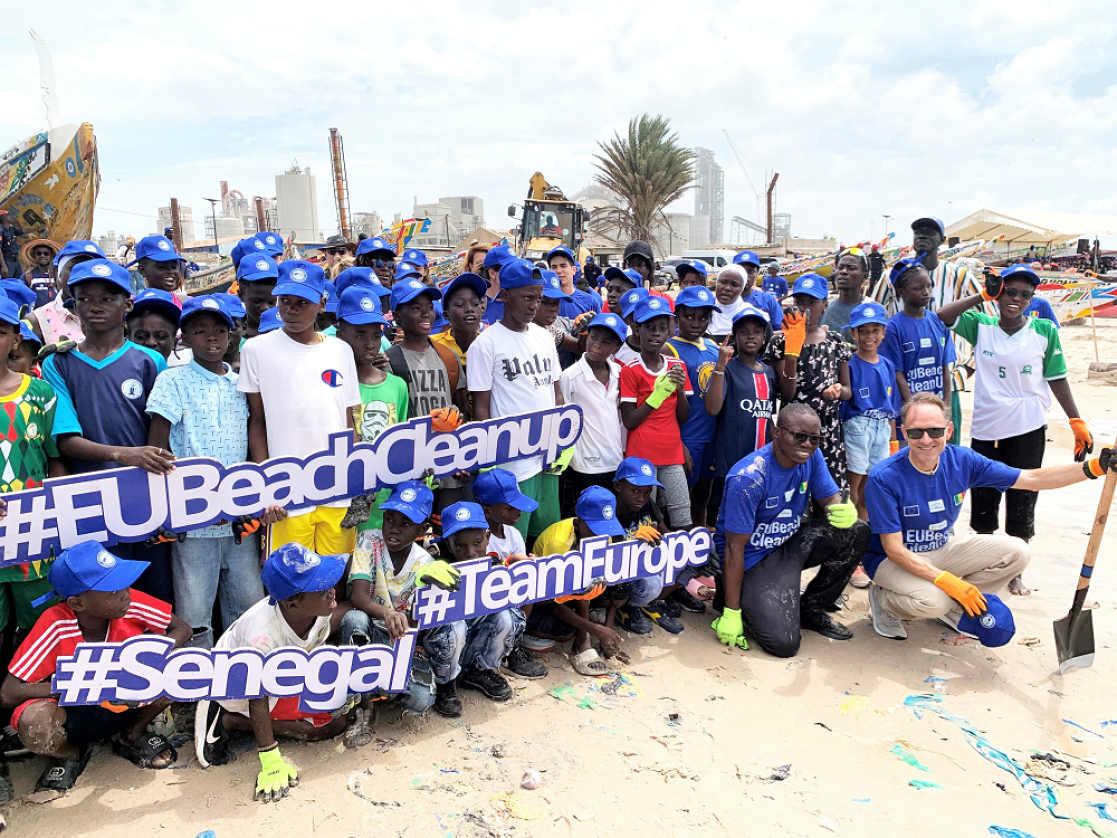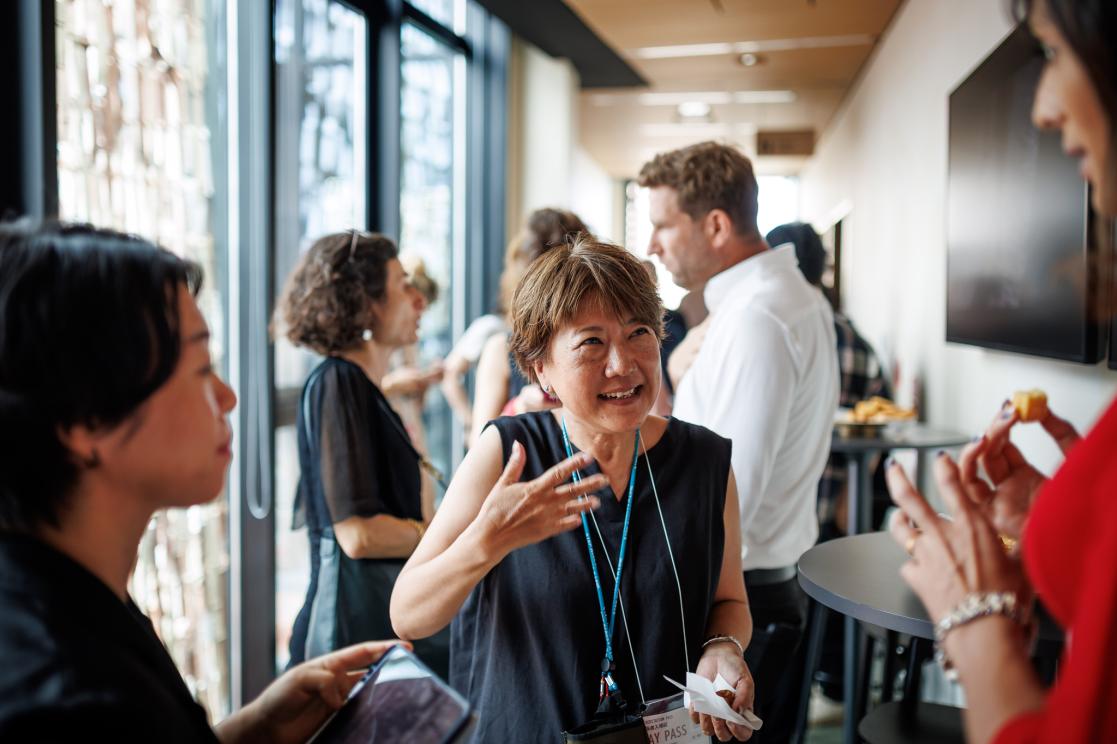Public Diplomacy
The European Union (EU) believes that connecting people directly helps build trust, improve understanding, and support common values around the world.
Through public diplomacy, the EU engages with diverse audiences—students, artists, civil society, young community builders, media, and more—to build and co-create a future together by collaborating on common goals, exchanging ideas, and integrating local perspectives with European values.
WHAT IS PUBLIC DIPLOMACY?
The EU’s public diplomacy is a long-term strategy to:
- Engage over time with citizens from the whole world beyond traditional government-to-government relations;
- Promote EU interest and EU standards such as democracy, human rights, and multilateralism;
- Foster sustainable networks of trust with young people, EU alumni and EU citizens around the world;
- Clearly explain its values and actions to the public, ensuring accurate information about the EU is shared in today’s complex and often confusing media landscape.
By engaging directly with citizens, the EU aims to create a foundation for cooperation on global challenges, including climate neutrality, digital transformation, health resilience, within the current geopolitical context.

DUE Senegal, 2024
Why public diplomacy matters
In a world of rapidly shifting narratives and information challenges, public diplomacy is essential for:
- Preventing misinformation and fostering trust in EU institutions.
- Building long-term partnerships with global citizens and stakeholders.
- Promoting peace, prosperity, and mutual respect through cultural and educational exchange.

European Union, 2025
EU PUBLIC DIPLOMACY AROUND THE WORLD
Working with young people
The EU recognizes young people as vital partners to shape a sustainable, inclusive, and peaceful world. Through the Youth Policy Dialogue with HR/VP Kaja Kallas, as well as ongoing work with the youth community “Our Voice, Our Future”, the EEAS ensures that young voices are integrated into EU foreign policy discussions.
These initiatives empower young people to engage with global challenges including EU geopolitical priorities; peacebuilding & conflict resolution; human rights & democracy and climate diplomacy. This work aims to build a better future for all generations.
On the ground in countries across the world, EU Delegations implement local youth programmes, including Young European Ambassadors, local Youth Sounding Boards, and educational exchanges. These programmes support young people in building leadership skills, developing cross-cultural understanding, and taking an active role within civil society.
Read more about EU engagement with young people on EU foreign policy
EU-ALUMNI: Staying connected
The EU Alumni network links alumni of EU programs and initiatives to the EU and to each other. This community includes for example young leaders, community-builders, journalists, researchers and cultural professionals who have engaged with the EU.
EU Alumni is a place where alumni share stories, collaborate, and stay informed about EU initiatives.
Follow the link to read the EU Alumni Magazine and subscribe to receive future issues in your inbox!
International Cultural Relations
International cultural relations play a pivotal role in EU public diplomacy by fostering mutual understanding, trust, and positive perceptions of Europe globally. Through initiatives like artists residencies, cultural exchanges, and museum cooperation, the EU promotes its values while celebrating shared heritage and diversity. By positioning culture as a bridge between societies, the EU not only amplifies its global reach but also reinforces its identity as a unified, values-driven entity in an increasingly interconnected world.
Read more about our work on International Cultural Relations.
EU Delegations: Public diplomacy on the ground
EU Delegations are the local face of the EU, adapting public diplomacy strategies to regional contexts. Their efforts include:
- Strategic local engagement
- Targeted audiences: Students, youth, civil society, media, entrepreneurs, and cultural actors.
- Perception studies: Regular surveys guide initiatives to address local concerns and opportunities. Example of study coverting Brazil, India, Russia, and the U.S. in 2021: Main report, and country reports.
- Partnerships: Collaborations with Member States, local organizations, and the private sector to maximize impact.
Examples of activities
- Cultural festivals and film screenings
- Workshops and training for young journalists, diplomats, and entrepreneurs.
- Public debates on global challenges like climate change, digital ethics, and human rights.
- Europe Day celebrations with local communities to mark the EU’s commitment to peace and unity.
Read more about our work in EU Delegations around the world.
EU Participation in World Expos
World Expos are major public diplomacy opportunities for the EU.
For the 2025 World Expo in Osaka, Japan (13 April–13 October 2025), the EU has a pavilion with the theme of “Nurturing Tomorrow”. The EU pavilion is a space for discovery, dialogue, and interaction!
At the World Expo, the EU hosts cultural events, debates, artist residencies, business workshops, and discussions which highlight European innovation, cultural diversity and global cooperation.
The EU collaborates with EU Member States to maximize visibility and engagement at this global event.
For more details, visit the EU at World Expos website.
Leveraging European Diaspora
EU Delegations connect with European citizens living abroad to:
- Strengthen ties with local communities.
- Amplify EU narratives through expatriate networks.
- Support initiatives like European elections outreach and cultural exchange programmes.
EU PUBLIC DIPLOMACY AT HEADQUARTERS
EEAS Open Day: Europe Day Celebration
Each year around Europe Day (9 May), the EEAS opens its doors to the public for a day of interactive experiences, including:
- Meetings with EU Ambassadors and diplomats.
- Cultural performances and art workshops.
- Conferences and demonstrations.
Find out more about how the Open Day promotes the role of the EU in building a better world.
Study visits to the EEAS
The EEAS headquarters host over 5,000 visitors annually in Brussels, including:
- University students and young professionals.
- Journalists, diplomats, and international organizations.
- Participants in tailored programmes to learn about EU foreign policy and global cooperation.
Discover some facts and figures about the study visits to the EEAS that took place in 2024.
EU Visitors programme (EUVP)
In close cooperation with EU Delegations throughout the world, the EUVP invites young political leaders and opinion-formers from outside the EU. The EUVP offers them tailor-made study visits to meet Members of the European Parliament, officials from the EU Institutions, and other EU stakeholders.
The visits include both individual and joint meetings and activities with fellow EUVP participants. Joint meetings and activities are organised on the basis of visitors’ thematic interests, or by bringing together visitors from neighbouring countries or regions.
Find out more detail about the EU Visitors Programme.
European Public Diplomacy Week
European Public Diplomacy Week (EPDW) brings together different EU institutions working on public diplomacy and international people-to-people initiatives, to share best practices and exchange ideas. Besides EU institutions, there are contributions from networks of regions and cities, civil society, cultural projects, practitioners and academics from across the world.
Find out more about European Public Diplomacy Week.












